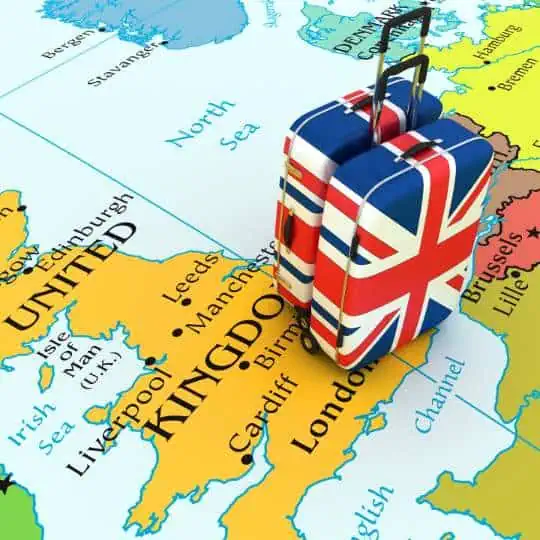Expanding into Spain is an exciting opportunity for any business. The country offers a large domestic market, a gateway to Latin America, and a diverse industrial base. Yet, entering a new market comes with challenges: language barriers, unfamiliar regulations, and the cost of setting up operations. One of the most effective solutions is to work with a sales agent in Spain.
In this guide, we explain what sales agents do, why they are useful for foreign companies, how to find and evaluate them, and what you need to know about contracts and commissions. If you are considering Spain as your next growth market, this article will give you the practical roadmap you need.

Table of Contents
What Is a Sales Agent in Spain?
A sales agent in Spain is an independent professional (or a small agency) who represents your products and services on a commission-only basis. Unlike employees, agents are not on your payroll. Instead, they earn a percentage of the sales they generate.
Agents typically work with multiple companies, often within the same sector. For example, a sales agent specialising in industrial machinery may represent two or three complementary brands.
For international businesses, especially those based in the UK, a sales agent provides a flexible way to enter the Spanish market without setting up a local office. You get access to the agent’s contacts, networks, and language skills while avoiding the fixed costs of employees.
Why Work with a Sales Agent in Spain?
Market Access Without Heavy Investment
Hiring staff or establishing a subsidiary in Spain requires a substantial upfront commitment. With a sales agent, you avoid these costs. You gain market access with minimal risk, paying only when sales occur.
Local Knowledge and Relationships
Spain is a relationship-driven market. A local sales agent already has the trust of buyers and distributors. They understand cultural nuances, negotiation styles, and how decisions are made in Spanish companies.
Flexibility and Performance-Based Pay
Since agents are commission-based, they are motivated to generate results. You can start small, test the collaboration, and then scale up without significant financial exposure.
Sales Agent vs. Distributor vs. Subsidiary
Choosing the right entry model depends on your resources, risk appetite, and long-term goals.
| Model | Key Features | Pros | Cons |
|---|---|---|---|
| Sales Agent | Independent, commission-based; you control pricing and contracts | Low cost, fast market entry, access to networks | Less commitment than an employee; agent may represent other brands |
| Distributor | Buys and resells your product in Spain | No direct sales management, distributor takes inventory risk | Lower margins, less control over final pricing and branding |
| Subsidiary/Branch Office | Full legal presence in Spain with staff and infrastructure | Maximum control, long-term presence | High setup and operating costs, complex compliance |
In many cases, starting with a sales agent is the ideal “middle ground” — more control than a distributor, far less investment than a subsidiary.
How to Find a Sales Agent in Spain
Online Directories and Platforms
There are dedicated platforms where businesses and agents connect. Websites such as SalesAgents.uk, Agents24, or industry-specific portals let you post offers and browse profiles.
Trade Fairs and Business Events
Spain hosts numerous international trade shows, from Alimentaria (food and beverage) in Barcelona to Construmat (construction) and FITUR (tourism). Meeting agents in person is one of the best ways to build trust.
Professional Networks
LinkedIn is widely used in Spain. Searching for “Sales Agent Spain” or sector-specific keywords helps identify candidates. Chambers of commerce, both Spanish and international, are also valuable sources.
Specialist Consultancies
Market entry consultancies such as Fiderenos pre-screen and introduce vetted agents. This saves time and ensures candidates meet both professional and legal standards.
Typical Commission Rates and Remuneration
One of the main advantages of working with a sales agent is the cost structure: you pay for results. That said, commissions vary by industry and product.
- Consumer goods: 5–10% of sales value
- Industrial equipment: 7–15%
- High-value B2B services: 10–20%
Agents may also request a small fixed fee to cover travel or marketing expenses, especially during the early phase. This is negotiable and should be linked to measurable activity.
Remember: a slightly higher commission can motivate an agent to prioritise your product over others. Cutting too hard on commissions may save money in the short term but reduce long-term performance.
Legal Framework and Contracts in Spain
Spanish Agency Act (Ley 12/1992)
Spain regulates commercial agency agreements through Law 12/1992. The law protects both principal and agent, covering rights to commission, termination rules, and compensation. Having a written contract is strongly recommended.
Key Contract Clauses
- Territory: define whether the agent covers Spain as a whole or specific regions.
- Exclusivity: decide if the agent is your sole representative or if you will appoint multiple.
- Commission: specify the rate, payment schedule, and how disputes are resolved.
- Termination: set a notice period and agree on compensation in case of termination.
Language & Translation Considerations
While contracts can be drafted in English, a Spanish version is often needed for legal enforcement. Always work with a bilingual legal adviser to avoid misunderstandings.
How to Evaluate and Onboard an Agent
Interview Questions to Ask
- Which clients do you currently represent?
- What sectors or regions are you strongest in?
- How do you usually report sales results?
- Can you provide references from past partners?
Trial Period and KPIs
Start with a 3–6 month trial. Define clear performance indicators such as number of new leads, meetings booked, or first sales closed. This protects both sides.
Tools and Support You Should Provide
- Professional marketing material in Spanish
- Product samples or demo access
- Regular updates and training
- CRM or reporting templates
The better you equip your sales agent, the more successful they will be in representing you.
Regional Differences in the Spanish Market
Spain is not a uniform market. Understanding regional strengths helps you decide where to focus.
- Madrid: administrative and financial hub, strong in services and B2B sectors.
- Catalonia (Barcelona): industrial powerhouse, vibrant startup ecosystem.
- Andalusia: leading in agriculture, renewable energy, and tourism.
- Valencia: logistics hub with one of Europe’s busiest ports.
Case Study — How a UK Company Grew with a Sales Agent in Spain
In 2022, a UK-based manufacturer of eco-friendly packaging decided to explore the Spanish market. Instead of opening a branch office, they partnered with a Barcelona-based sales agent with existing connections in retail and foodservice.
Within 12 months, the company secured three major contracts: one with a supermarket chain in Madrid, one with a distributor in Valencia, and one with a catering group in Seville. The agent’s understanding of Spanish sustainability regulations proved critical in closing deals.
Step-by-Step Checklist for Hiring a Sales Agent in Spain
- Define your goals and budget.
- Search directories and LinkedIn for candidates.
- Shortlist 3–5 agents with sector expertise.
- Conduct interviews and request references.
- Draft and negotiate a written contract under Spanish law.
- Provide Spanish marketing materials and samples.
- Agree on KPIs and review progress after six months.
FAQs
Q: What does a sales agent in Spain do?
A: A sales agent promotes your products in Spain on a commission basis, using their local network to generate sales.
Q: How much do sales agents charge in Spain?
A: Commission rates vary between 5% and 20%, depending on industry and product.
Q: Do I need a written contract?
A: Yes. Spanish agency law requires clear agreements covering territory, commission, and termination.
Q: Can I work with more than one agent in Spain?
A: Yes. You can appoint agents in different regions or sectors, provided the contract allows it.
How Fiderenos Helps You expanding your business in Spain?
At Fiderenos, we specialise in helping international companies enter the Spanish market. From identifying targets, conduct prospection actions, negociating contracts and onboarding customers, we provide end-to-end support.



